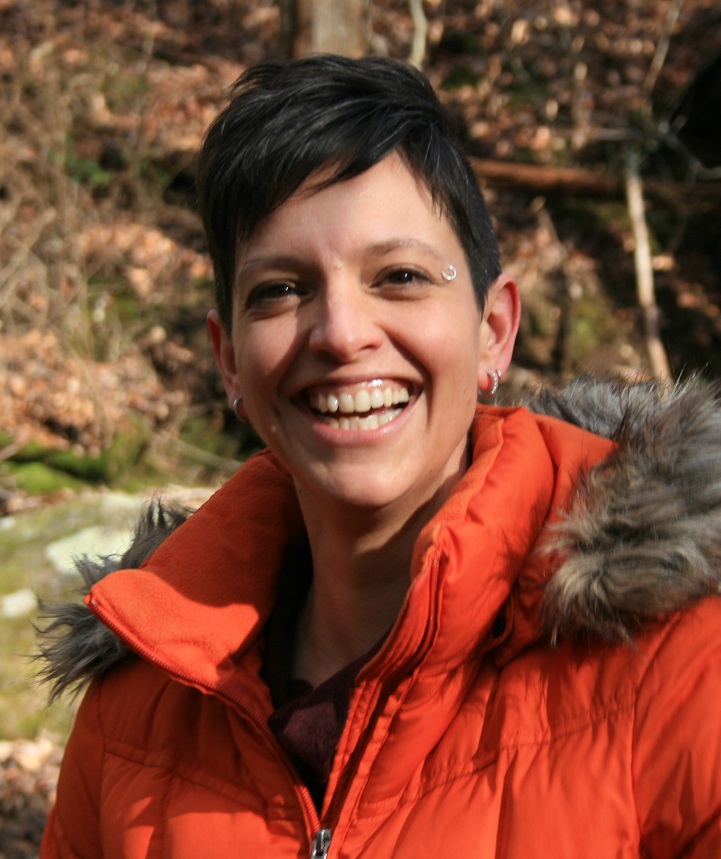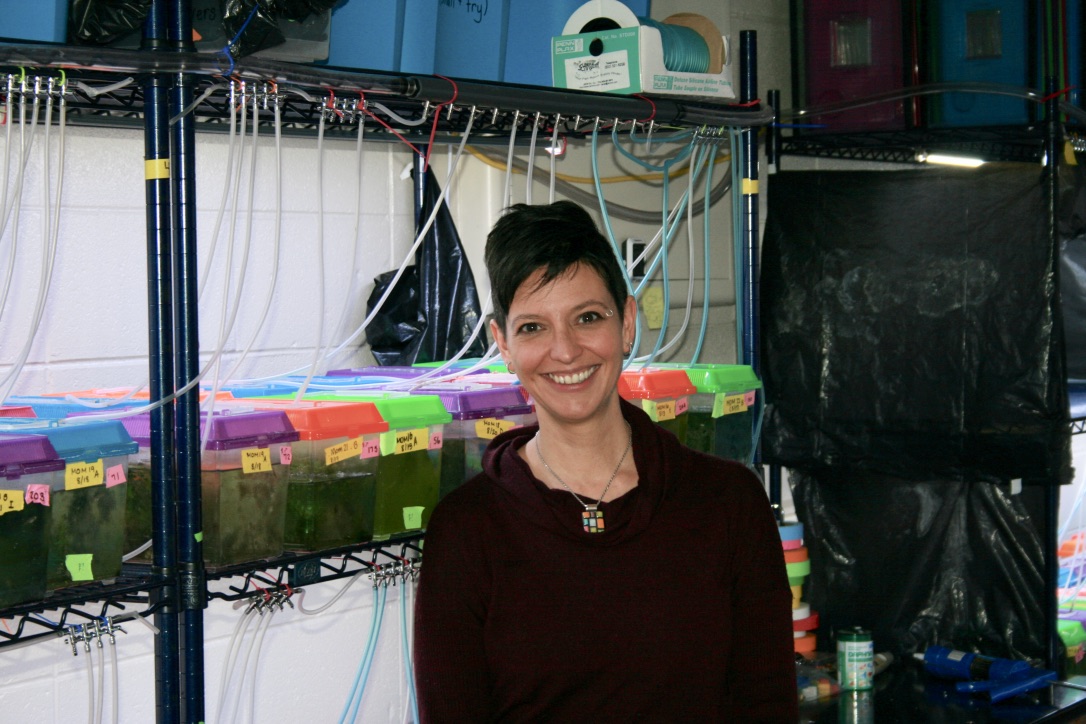About the department:
The University of the South is a liberal arts college with fewer than 1800 undergraduate students. I teach multiple classes every semester but there are usually fewer than 20 students in each. The University sits on the Cumberland plateau in Tennessee and is surrounded by over 10,000 acres of wilderness owned by the University with lots of hiking and biking trails.
About the research:
I am a behavioral ecologist interested in the role parental effects have in shaping offspring behavior. I study how the stress that parents experience during their lives, such as predator encounters, affects the behavior of their offspring in the future. For example, is an offspring’s reaction to predators affected by their mother’s experience with predators during pregnancy or egg production? I use a variety of fish species in my research because they are easy to manipulate and observe in the lab, and they are just super fun to watch!
What has been the biggest challenge as a new PI?
Adjusting to a small undergraduate-only liberal arts college has been challenging. All of my previous experiences had been with large research-centered universities, even as an undergraduate. Without a graduate program and with a large emphasis on meaningful interactions with students and interactive teaching, I have had to change my approach to teaching as well as research. It has been rewarding in many ways and I have realized that I can make a huge difference in student lives. But it has also been challenging to keep an active large-scale research program moving forward. There isn’t the continuity that graduate students would bring and research often progresses in fits and starts depending on the undergraduates I can recruit to my lab. I have had to adjust my expectations for research and continually have to work on not beating myself up for slow progress.
How do you approach mentoring with students?
As a graduate student, all of the students in the lab would laugh about meetings with our advisor (Joe Travis). During the meeting, Joe would tell you that things you had done were wrong and you needed to do more work, but somehow, you ended up leaving the meeting super excited about your project and positive about yourself. It is a magical skill. I try to keep this in mind when I mentor students – correct the mistakes and guide them but always have them leave our meeting feeling good about themselves and the amazing things they have accomplished. For undergraduates, this is particularly important - one overly-critical interaction and they could abandon science altogether! I know that eventually developing a thick skin is important, but before that, we need to give students a safe place to fail, learn, and gain some confidence in their abilities.
Did you ever have something go wrong while teaching?
While teaching an outdoor behavioral ecology lab on bird foraging in my first semester at Sewanee, I went into anaphylactic shock after being stung by several yellow jackets. I had been stung by wasps and bees in the past so I had not been concerned when I was stung during the lab, but within 2 minutes, I was unconscious (my throat did not close). Luckily one of my students had EMT training. He recognized the reaction and knew what to do. My students had to contact the police and carry me to the road since we were on a trail in the forest. I was very lucky and the students were wonderful, but this was certainly not the lab I had intended! Needless to say, they all got 100% on that lab.
Do you have a funny story to share from your first Evolution meeting?
I attended my first evolution meeting as a beginning graduate student when I was doing my Master’s. Because I had barely finished collecting my data, my poster was done at the last minute. I had never made a poster before and ended up having a variety of technical challenges, one of which was a giant mysterious “ F ” that had appeared in the middle of my poster. I could not get rid of it! But I didn’t have time to wait for tech support so it got printed as it was. The poster session went fine despite the obnoxious “ F ” in the middle and the jokes about the “F” being a grade on my poster. Interestingly, some people didn’t notice the mistake, or they were too kind to say anything to a super nervous graduate student. I learned a valuable lesson about never trying to do a poster in a hurry!
What do you enjoy in your free time?
Hiking, mountain biking, and outdoor adventures with my mud-obsessed children. Sneaking lentils and beans into yummy baked goodies.
 Katie McGhee
Katie McGhee